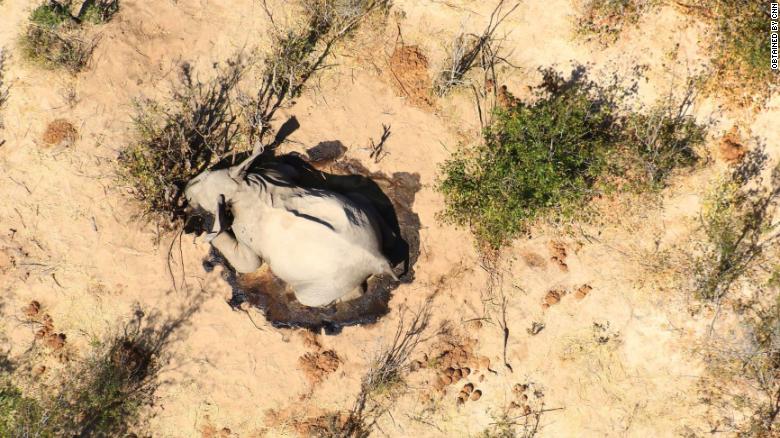
More than 300 elephants in Botswana have been killed by toxin-producing cyanobacteria in waterholes, government wildlife officials said Monday. But that explanation doesn’t satisfy some conservationists.
The deaths, which took place over the course of three months, were first recorded in May and reported in early July. Their cause was initially a mystery; Botswana ordered laboratory tests to be carried out on carcass, soil and water samples as speculation grew over the deaths.
Cyanobacteria are routinely found in water, but not all produce toxins. Scientists worry that climate change will trigger the bacteria to produce more toxins as water temperatures rise and conditions become more favorable for the bacteria to grow.
Botswana is home to 130,000 African elephants — more than any other country on the continent. Last year, the country scrapped an elephant hunting ban it had in place since 2014, sparking international outcry.
Some conservationists had suspected poachers of killing the elephants, which died in May.
The country’s Deputy Director of Wildlife and National Parks, Cyril Taolo said Monday that the government had all but ruled out human involvement in the deaths.
“I don’t think anybody can ever say never, but in this instance, the available evidence is showing that this was a natural occurrence,” he said at a press conference.
Taolo said additional clues on the ground, including that the dead elephants were all found their tusks intact further strengthened the government’s findings that the deaths were naturally caused. “We have ruled out poaching,” he said.
But skeptical conservationists are demanding that the full results of the government’s investigation be released.
“If it’s in waterholes or was in waterholes, why was it only elephants that were affected?,” Keith Lindsay, a conservation biologist, whose research is focused on elephants, told CNN.


